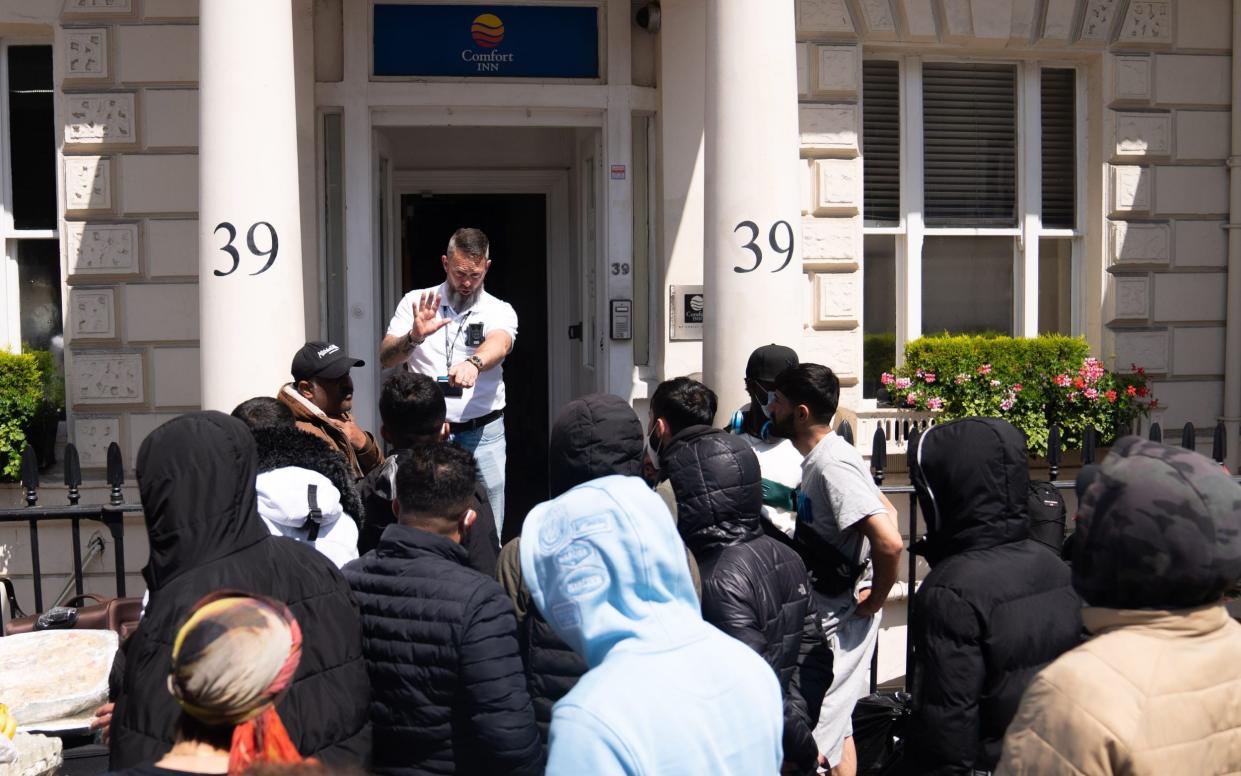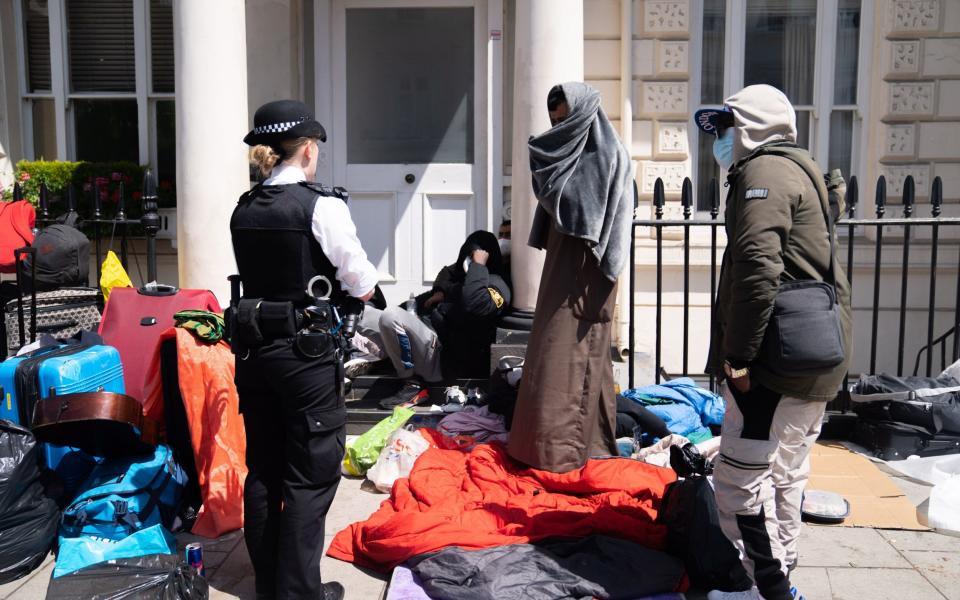Migrants threatened with loss of rights if they refuse to share hotel rooms

Ministers have warned asylum seekers refusing to share hotel rooms to accept the “generous” offer or lose their right to public funding for housing, food or money.
Robert Jenrick, the immigration minister, is understood to have ordered officials to take a tough approach and not back down in the face of demands for single rooms by the asylum seekers.
The 40 migrants have staged a pavement protest since Thursday and barricaded the door of the hotel with their baggage after refusing to return to their rooms.
They barricaded the door of the hotel and refused to return to their rooms, claiming it was nothing like the “nice” accommodation they had seen on Google Maps.
They had previously been at a hotel in Ilford, Essex, where most had single rooms with en suite bathrooms.
It is understood that Mr Jenrick has instructed officials not to back down and allow migrants to select their hotel of choice or demand individual rooms at extra cost to the taxpayer.
He is said to have told officials the asylum seekers can accept the “generous” offer of accommodation or lose their right to support, including housing, food or money.
They have been instructed to send letters to the migrants telling them they will have their support withdrawn if they refuse the offer.
“He is not backing down. This is outrageous behaviour,” said a source.
It follows a decision by Mr Jenrick for groups of two, three or four single adult male migrants to be required to share a single room, rather than have individual rooms.
It has been dubbed “Operation Maximise” within the Home Office and is designed to reduce the £6 million a day cost of housing some 50,000 asylum seekers in hotels, as well as lessen the “pull factor” to the UK.

Adam Hug, leader of Westminster City Council, accused the Home Office of failing to tell the local authority it was transferring migrants to their area.
Mr Hug wrote to Suella Braverman, the Home Secretary, to voice his “deep concern” at the asylum seekers being on the streets “without appropriate accommodation or support available, and with no communication to Westminster as the local authority”.
He added: “Neither the Home Office nor the hotel itself responded to this incident, ultimately leaving it to council officers to manage and support this large group overnight.
“I would ask that you urgently clarify how this was allowed to happen, why this was acceptable, and why no communication was made with the local authority to alert us.”
He said it was not “acceptable or right” to have asylum seekers forced to endure a night on the streets because of the poor management of their transfer from a hotel in Ilford, Essex.
“When dealing with a group of people where many of whom are likely to have been through significant and traumatic events that have led them to seek asylum, asking them to share an inappropriately sized room with multiple strangers defies common sense and basic decency,” wrote Mr Hug.
“Such an approach clearly risks leading to similar incidents in the future, as well as creating safeguarding and health risks.
“Leaving them on the street for multiple nights is not an alternative. I would ask that you confirm you will not pursue this approach in Westminster or elsewhere, going forward.”
A 27-year-old Iranian said: “Two square metres is not enough for sleeping four people. And when you go to the toilet, the smell damages you.”
A 21-year-old Channel migrant from Iran said: “They said we’re going to move you to another, better place.
“They gave us this postcode. When we checked on Google Maps, we said ‘oh this is very nice’. But when you get in, it’s like a jail. And they treat you very, very bad. They treat you like an animal.
“We didn’t come to a better life. We came to save our lives. If the Iranian government take me, they’re going to hang me because I fought for freedom. I’m Kurdish. Too many people in my family, too many people in my nationality, they’re hanged.
“We’ll stay [on the street] until the Home Office does something for us. We can stay even for one month. It’s alright.”

 Yahoo News
Yahoo News 
